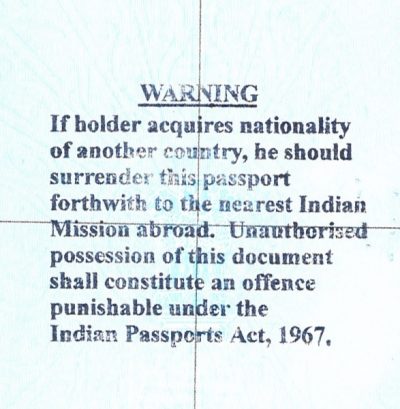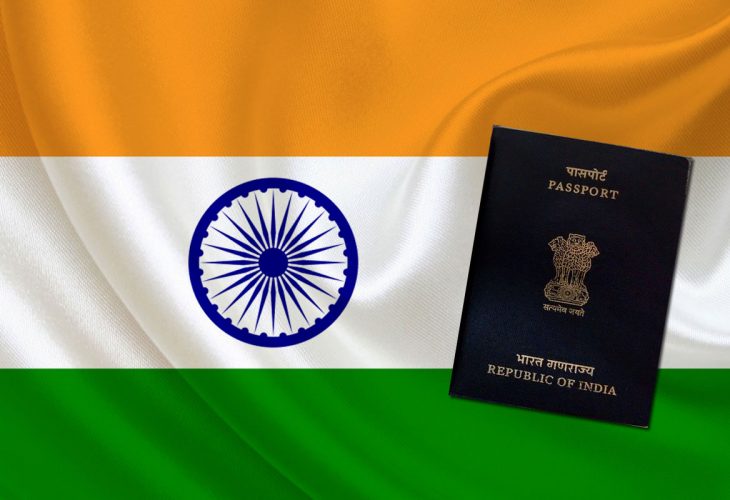The Constitution of India does not allow or recognize dual or multiple citizenships or passports. Indians also prohibited holding dual/multiple passports and cannot have a second country’s passport simultaneously with an Indian one — even in the case of a child.
The Citizenship Act bars dual citizenship. Holding, or travelling on, Indian passport after acquiring the foreign citizenship is also an offence under the Passport Act and attracts penalties.
Automatic loss of Indian citizenship covered in Section 9(1) of theCitizenship act 1955, provides that any citizen of India who by naturalisation or registration acquires the citizenship of another country shall cease to be a citizen of India.
According to Indian citizenship Act of 1955
9. Termination of citizenship.―(1) Any citizen of India who by naturalisation, registration otherwise voluntarily acquires, or has at any time between the 26th January, 1950 and the commencement of this Act, voluntarily acquired, the citizenship of another country shall, upon such acquisition or, as the case may be, such commencement, cease to be a citizen of India

The termination provision differs from the renunciation provision because it applies to “any citizen of India” and is not restricted to adults. Indian children therefore also automatically lose their claim to Indian citizenship if at any time after birth they acquire a citizenship of another country by, for example, naturalisation or registration — even if the acquisition of another citizenship was done as a result of actions by the child’s parents.
OCI Card
Indians who have become foreign citizens, can apply for OCI card.
The Overseas Citizenship of India (OCI) Scheme was introduced by amending the Citizenship Act, 1955 in August 2005 for the diaspora population.
A registered Overseas Citizen of India is granted multiple entry, multi purpose, life-long visa for visiting India, he/she is exempted from registration with Foreign Regional Registration Officer or Foreign Registration Officer for any length of stay in India, and is entitled to general ‘parity with Non-Resident Indians in respect of all facilities available to them in economic, financial and educational fields except in matters relating to the acquisition of agricultural or plantation properties’.
OCI is not ‘dual citizenship’ and does not confer political rights or public employment in Government.
India still uses machine readable passports and will soon implement biometric chip passports.





